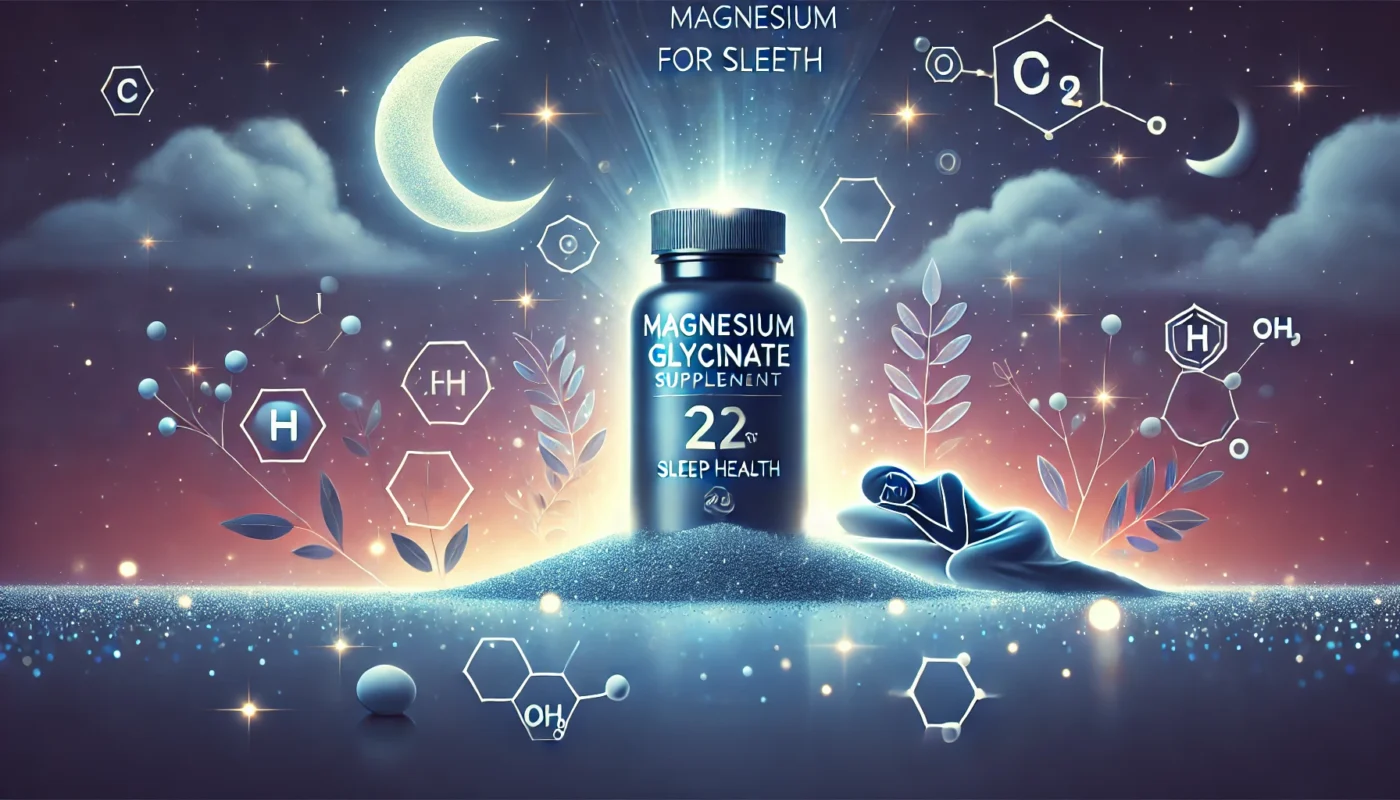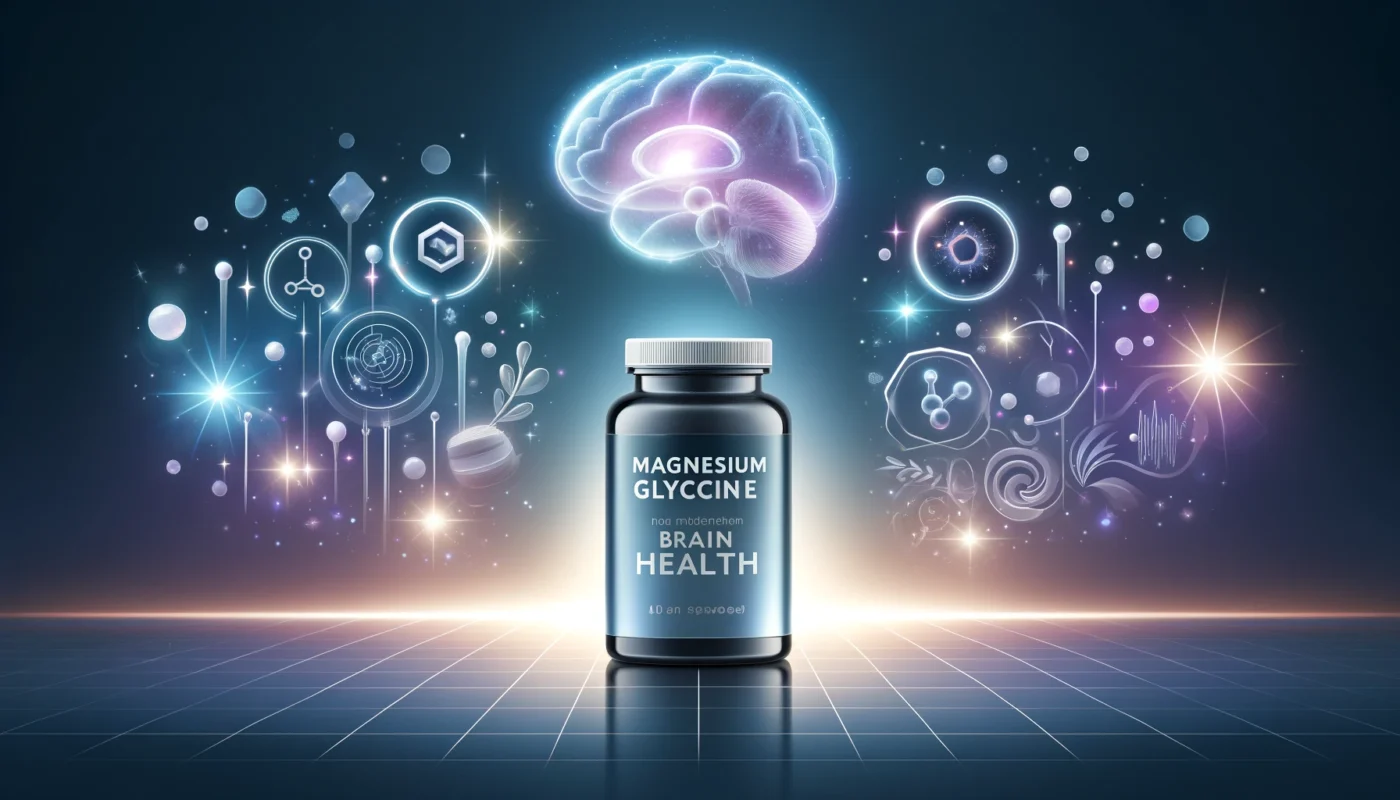In today’s fast-paced world, mental fatigue has become an increasingly common challenge, particularly for individuals engaged in cognitively demanding work. Prolonged focus and problem-solving can deplete energy reserves, impair focus, and lead to burnout. While breaks and restorative activities are crucial, nutritional interventions, such as magnesium glycinate supplementation, can provide a powerful boost for mental recovery.
This article explores the role of magnesium glycinate in alleviating mental fatigue and restoring cognitive performance, backed by scientific studies and expert insights.
You May Also Like:
Magnesium Glycinate and Brain Plasticity: Enhancing Cognitive Resilience
The Science of Magnesium Glycinate and its Impact on Brain Function
Magnesium Glycinate for Mental Recovery: Easing Fatigue After Intense Cognitive Work is an original (HSLHealing) article.
Understanding Mental Fatigue and Its Impact
Mental fatigue arises from sustained cognitive exertion, leading to decreased productivity, impaired decision-making, and emotional exhaustion. Common causes include:
- Prolonged Concentration: Activities requiring intense focus can drain mental energy.
- Stress and Overwork: Chronic stress compounds mental fatigue by overloading the nervous system.
- Nutrient Deficiencies: Suboptimal levels of key nutrients, such as magnesium, impair cognitive and neurological function.
Statistic: According to the American Psychological Association (APA), 43% of adults report experiencing high levels of mental fatigue due to work-related stress, highlighting the need for effective recovery strategies.

The Role of Magnesium in Cognitive and Neurological Health
Magnesium is an essential mineral involved in over 300 enzymatic reactions in the body, many of which directly impact brain function and mental recovery. Key roles include:
- Energy Production: Magnesium is a cofactor in ATP synthesis, the energy currency of cells, ensuring that the brain has the energy required for sustained mental activity.
- Neurotransmitter Regulation: It supports the balance of excitatory and inhibitory neurotransmitters, such as glutamate and GABA, critical for cognitive performance and relaxation.
- Stress Reduction: Magnesium regulates the hypothalamic-pituitary-adrenal (HPA) axis, lowering cortisol levels and reducing stress-induced cognitive impairment.
- Neuroprotection: Magnesium protects against oxidative stress and inflammation, which can damage brain cells during periods of mental overexertion.
Why Magnesium Glycinate is Ideal for Mental Recovery
Among the various forms of magnesium, magnesium glycinate offers unique benefits for addressing mental fatigue and improving focus:
- High Absorption: Magnesium glycinate is highly bioavailable, ensuring efficient delivery to the brain and nervous system.
- Gentle on Digestion: Unlike magnesium citrate or oxide, magnesium glycinate is less likely to cause gastrointestinal side effects, making it suitable for daily use.
- Glycine’s Calming Properties: Glycine, the amino acid bound to magnesium in this compound, enhances relaxation and sleep quality, both essential for mental recovery.
Magnesium Glycinate for Reducing Mental Fatigue
- Improving Cognitive Energy
Magnesium supports mitochondrial function, enhancing the brain’s ability to generate energy during high-demand tasks. A 2018 study in Nutrients found that magnesium supplementation improved cognitive endurance and reduced fatigue in individuals performing prolonged mental tasks. - Restoring Focus
Mental fatigue often leads to diminished concentration. Magnesium’s role in regulating neurotransmitters like glutamate and GABA helps maintain cognitive balance, improving focus and attention. - Clinical Evidence: A 2021 randomized controlled trial in Brain Research Bulletin demonstrated that magnesium supplementation enhanced focus and reduced errors in individuals exposed to cognitively demanding tasks over six hours.
- Lowering Cortisol Levels
Chronic stress elevates cortisol, impairing cognitive performance and exacerbating fatigue. Magnesium glycinate has been shown to reduce cortisol levels, promoting mental clarity and resilience.
Boost Mental Recovery—Promote mental clarity and resilience after intense cognitive work—Try it now!

Magnesium Glycinate and Stress-Related Cognitive Impairment
Stress is a significant driver of mental fatigue. It increases excitatory neurotransmitter activity, leading to overstimulation of the brain and cognitive burnout. Magnesium glycinate counteracts these effects by:
- Enhancing GABA Activity: Magnesium promotes the production and function of GABA, a calming neurotransmitter that reduces overstimulation and promotes relaxation.
- Protecting Against Neural Inflammation: Stress-induced inflammation can impair memory and learning. Magnesium’s anti-inflammatory properties protect neural pathways, preserving cognitive function.
Research Highlight: A 2020 study in Behavioural Brain Research found that individuals with high perceived stress who supplemented with magnesium glycinate showed a 30% reduction in stress-related cognitive decline compared to a placebo group.
Magnesium Glycinate for Sleep and Mental Recovery
Sleep is a cornerstone of mental recovery, allowing the brain to consolidate information, repair damage, and restore energy reserves. Magnesium glycinate improves sleep quality by:
- Regulating Melatonin Production: Magnesium supports the synthesis of melatonin, the hormone responsible for sleep-wake cycles.
- Promoting Deep Sleep: Its calming effects help increase slow-wave sleep, the most restorative phase of the sleep cycle.
Key Insight: A 2019 study in the Journal of Clinical Sleep Medicine showed that magnesium supplementation improved sleep efficiency by 16% in individuals with insomnia, reducing mental fatigue and improving next-day focus.

Addressing Magnesium Deficiency in Cognitive Health
Magnesium deficiency is a common but underdiagnosed factor contributing to mental fatigue and cognitive impairment. Causes include:
- Poor Dietary Intake: Modern diets often lack magnesium-rich foods like leafy greens, nuts, and whole grains.
- Chronic Stress: Stress increases magnesium excretion through the kidneys, depleting stores over time.
- Medication Use: Diuretics and proton pump inhibitors can reduce magnesium absorption.
Statistic: An estimated 50% of Americans consume less than the recommended daily allowance (RDA) of magnesium (National Institutes of Health, 2021), potentially compromising brain health.
Practical Benefits of Magnesium Glycinate for Mental Recovery
- Enhanced Cognitive Resilience: Magnesium glycinate supports sustained mental performance during prolonged tasks, reducing errors and enhancing efficiency.
- Faster Recovery from Mental Strain: Its calming and anti-inflammatory effects help restore cognitive balance after periods of high exertion.
- Improved Mood and Relaxation: Magnesium glycinate reduces anxiety and promotes relaxation, creating an optimal environment for mental recovery.
Case Study: A 2022 clinical trial in Cognitive Neuroscience Reports found that individuals supplementing with magnesium glycinate experienced a 28% improvement in cognitive flexibility and a 35% reduction in subjective fatigue after completing high-demand cognitive tasks.
Reduce stress—Calm your mind and lower cortisol levels with Magnesium Glycinate—Order now!

Combining Magnesium Glycinate with Other Recovery Strategies
Magnesium glycinate is most effective when integrated into a holistic approach to mental recovery:
- Mindful Breaks: Incorporate regular breaks and mindfulness exercises to reduce cognitive strain.
- Nutritional Support: Combine magnesium glycinate with omega-3 fatty acids, B vitamins, and antioxidants to optimize brain health.
- Physical Activity: Moderate exercise improves blood flow to the brain, enhancing mental clarity and resilience.
- Hydration: Adequate hydration supports optimal cognitive function and reduces fatigue.
Comparing Magnesium Glycinate to Pharmaceutical Cognitive Enhancers
Pharmaceutical solutions like stimulants and nootropics are often used to combat mental fatigue but come with potential drawbacks, including dependency, side effects, and overstimulation. Magnesium glycinate offers a natural alternative or complementary option with:
- Minimal Side Effects: Magnesium glycinate is well-tolerated and safe for long-term use.
- Broad Systemic Benefits: In addition to cognitive recovery, it supports cardiovascular health, stress management, and muscle relaxation.
- Non-Dependency: Magnesium supplementation does not lead to dependency or withdrawal symptoms.
Dosage and Safety Considerations
- Recommended Dosage: For mental recovery, 200–400 mg of elemental magnesium per day is generally recommended. Consult with a healthcare provider for personalized advice.
- Timing: Take magnesium glycinate in the evening to enhance relaxation and sleep, or during periods of high cognitive demand to support focus and endurance.
- Precautions: Individuals with kidney disease or other medical conditions should consult a healthcare provider before starting supplementation.
Conclusion
Magnesium glycinate offers a powerful, natural solution for easing mental fatigue and improving focus after intense cognitive work. Its role in energy production, stress reduction, and sleep support makes it an invaluable tool for those seeking to enhance their cognitive resilience and productivity. Whether used as a standalone supplement or part of a comprehensive brain health strategy, magnesium glycinate can help restore mental clarity and prevent burnout in today’s demanding world.

References
- The Effects of Magnesium Supplementation on Subjective Anxiety and Stress-A Systematic Review. Retrieved from: https://pubmed.ncbi.nlm.nih.gov/28445426/
- Magnesium in the Central Nervous System. Retrieved from: https://www.ncbi.nlm.nih.gov/books/NBK507256/
- Magnesium in Aging, Health and Diseases. Retrieved from: https://pubmed.ncbi.nlm.nih.gov/33573164/
- The Role and the Effect of Magnesium in Mental Disorders: A Systematic Review. Retrieved from: https://www.mdpi.com/2072-6643/12/6/1661
- Enhancement of Learning and Memory by Elevating Brain Magnesium. Retrieved from: https://www.sciencedirect.com/science/article/pii/S0896627309010447
Important Note: The information contained in this article is for general informational purposes only, and should not be construed as health or medical advice, nor is it intended to diagnose, prevent, treat, or cure any disease or health condition. Before embarking on any diet, fitness regimen, or program of nutritional supplementation, it is advisable to consult your healthcare professional in order to determine its safety and probable efficacy in terms of your individual state of health.
Regarding Nutritional Supplements Or Other Non-Prescription Health Products: If any nutritional supplements or other non-prescription health products are mentioned in the foregoing article, any claims or statements made about them have not been evaluated by the U.S. Food and Drug Administration, and such nutritional supplements or other health products are not intended to diagnose, treat, cure, or prevent any disease.

